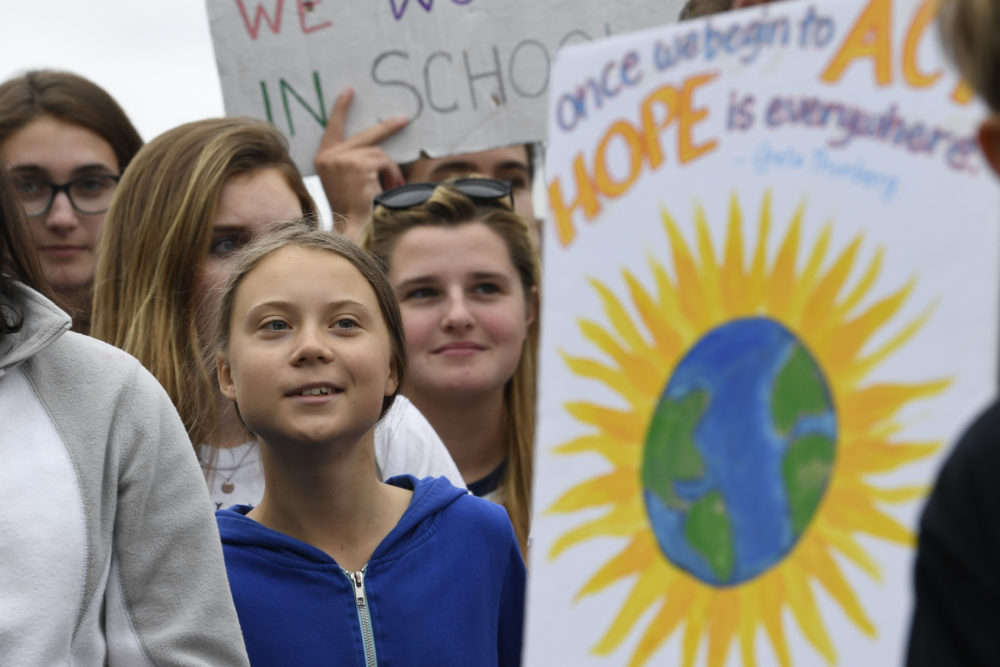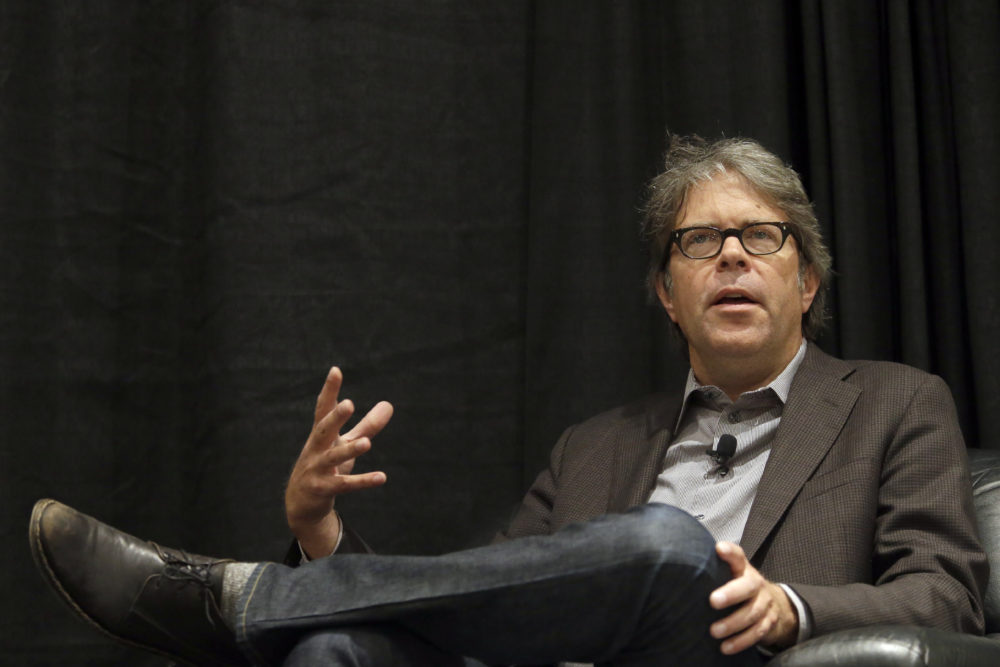Advertisement
Commentary
The Moral Case For Fighting Climate Change

On what should have been her first day of school in 2018, 15-year-old Greta Thunberg instead sat alone on the cobblestones in front of Sweden’s parliament building with a hand-painted sign that read “Skolstrejk för Klimatet.”
Almost exactly one year later, this Friday, September 20, millions of school kids will join her cause as the “school strike for climate” goes global. Led in this country by the Sunrise Movement, youth around the world — with the support of many adults, too — aim to make responding to climate change a top priority at all levels of government.
Thunberg will be speaking at a rally in Manhattan. Now an icon of the climate movement, she has voyaged to America to rouse us. She delivers her earnest message with cold logic and somber resolve: listen to the scientists — we know what must be done, so let’s get on with it.
And people seem to be paying attention. Climate change isn’t the top issue for most voters, but a new poll by CBS News showed most people now agree that it is caused, at least in part, by human activity. And two-thirds of those polled said humanity could slow down or stop climate change, with a majority advocating immediate government action.
For anyone who follows the climate issue closely, these divergent viewpoints present a dilemma.
But there is also a current of fatalism that runs counter to the hopefulness embedded in Thunberg’s urgent call to action. Some pessimistic observers look at where things stand and conclude that nightmarish scenarios have already become inescapable.
A trenchant new essay by Roy Scranton in the latest issue of The Baffler exemplifies a viewpoint that doubts our capacity to avoid self-annihilation.
In that piece, Scranton describes humanity’s devastating assault on the planet’s biodiversity, noting that climate change is just one of several destructive forces driving mass extinctions. He maintains that cognitive biases limit our thinking about the future and encumber our ability to cope with existential threats, which leads him to declare that societal collapse is the unavoidable outcome. “The leap to radical resistance or radical disengagement is too great for most of us to make,” is his gloomy diagnosis.
Almost as dark and more widely read was a recent commentary in The New Yorker by novelist Jonathan Franzen. Franzen portrays the world moving inexorably toward ecological catastrophe by the end of the century, plagued by fire, floods, collapsing economies and widespread crop failures.

For Franzen (whose scientific competence has been questioned), stopping climate change is a false hope. He warns that if people buy into that hope, they’ll neglect to prepare for the inevitable trouble ahead, which will leave whatever society survives more vulnerable to the tribalist forces that emerge from the ensuing chaos.
Instead of investing all our efforts in massive solar and wind farms, Franzen says we should focus more on strengthening the social institutions that will make us more resilient as we enter a period of climate catastrophe.
For anyone who follows the climate issue closely, these divergent viewpoints present a dilemma. On the one hand, we have voices like Scranton and Franzen whose appeal is for brutal honesty in confronting what they see as certain disaster, for humble acceptance of our sad fate, for an effort to salvage the best aspects of our humanity from the ruins of civilization.
Optimism hinges on a kind of disruption that’s difficult to imagine. Despite all that, I see a moral basis for hopefulness.
And on the other hand, we have Thunberg’s exhortation to rise, hope undimmed, resolute in the face of the historic challenge, unified in our resistance, confident in our resilience.
So how do you reconcile the doomsayers with the activists?
There are certainly excellent reasons to be pessimistic. The world economy is not decoupling the growth of carbon emissions from economic growth at a rate nearly fast enough to avoid potentially catastrophic increases in global temperature.
Lowering human impact on the biosphere to a sustainable level would require some combination of a sharp drop in population, a global economic crash, vastly greater energy efficiency, and full decarbonization of energy production. The first two are plainly undesirable; the latter two require rapid technological advances, as well as a radical and implausible transformation of economies and political systems across industrialized nations. Optimism hinges on a kind of disruption that’s difficult to imagine.
Despite all that, I see a moral basis for hopefulness.
I could not look Greta in the eye and tell her to give up. As a baby boomer, I think my generation has an obligation to those who come after us. If having hope requires a deus ex machina to descend, miraculously accelerating the requisite metamorphosis, then so be it.
I’m willing to entertain wild possibilities as long as the youth of the world are willing to speak truth to power.
This story is part of "Covering Climate Now," a week-long global initiative of over 250 news outlets.
